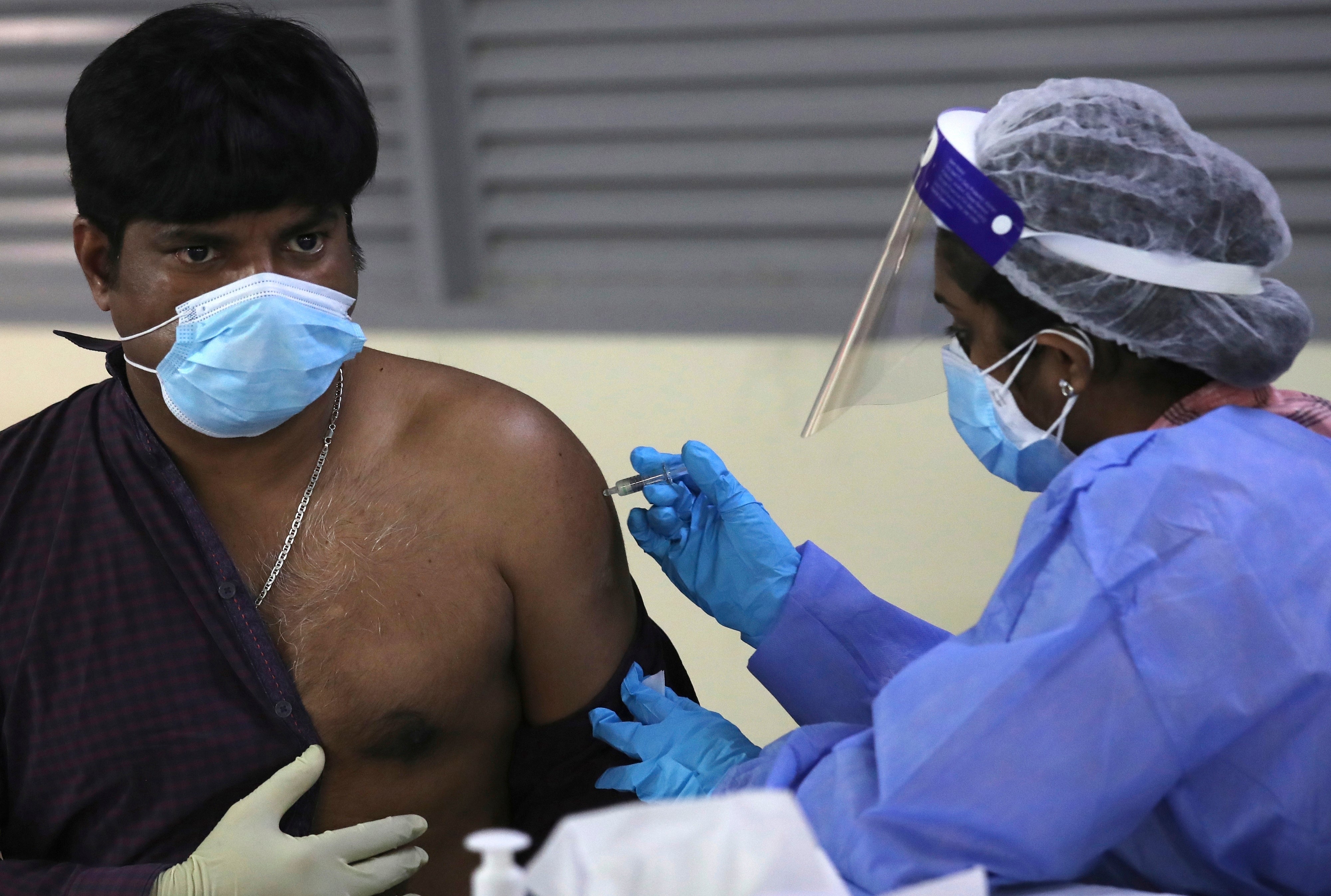In Dubai's COVID vaccine scramble, Sikhs serve doses to all
The coronavirus pandemic is surging to new heights in the United Arab Emirates and residents are scrambling to get vaccines

In normal times, the crowds of young Southeast Asian workers jostling for a place in line outside the Sikh temple in Dubai would mean one thing: free meals.
A core tenet of the world’s fifth-largest religion with over 50,000 adherents in the United Arab Emirates is “langar,” the practice of serving hot, home-cooked vegetarian food to anyone in need. It can be a lifeline in Dubai, where millions of low-paid workers from Asia, Africa and elsewhere power the service-heavy economy.
But over the past few days, the Sikhs of Dubai have traded their spiced rice and dal for what has become a coveted prize: 5,000 shots of the Chinese-made vaccine offered to people of all ages and backgrounds. As the coronavirus pandemic surges to previously unseen heights in the UAE, residents are scrambling to get vaccines in the world’s second-fastest inoculation drive.
“We found a lot of people who wanted to take the vaccine but faced difficulty,” Surender Singh Kandhari, the temple’s chairman said.
Kandhari said many front-line medical workers who failed to get vaccinated elsewhere due to shortages and new restrictions were lining up for jabs in the temple’s parking garage Monday. “This is the only way we can serve the community,” he said.
The UAE, with a vaccination campaign that trails only Israel, has administered 4.4 million shots in the country of some 10 million. Many Western countries imposed strict priority criteria that slowed vaccine distribution. But the UAE swiftly authorized emergency use of the shot by state-backed Chinese firm Sinopharm to anyone over the age of 16, despite a lack of data supporting its safety or efficacy.
Dubai, which swung open its doors to travelers fleeing tough lockdowns back home, is banking on widespread COVID-19 immunity to salvage its stagnating economy. The worsening outbreak has infected more than 329,000 people and killed 930.
But like elsewhere in the world, logistical problems caught up with the nation’s campaign. Amid a shortage of the Pfizer-BioNTech vaccine and skyrocketing virus cases, the government announced Sunday that it would temporarily limit vaccinations to residents and citizens over the age of 60 or with chronic health conditions. Scores of expats across the country learned that their appointments had been abruptly canceled.
The Sikhs have stepped up to the challenge. The powerful trustees of Dubai’s Sikh house of worship struck a deal with the Tamouh health care company to administer the Chinese jab to thousands of residents — drivers, grocery store clerks, doctors — who may otherwise struggle to be vaccinated.
None on Monday appeared to share health experts' concerns about the efficacy of the substance injected into their arms. There was a palpable sense of relief as men and women streamed out of the golden temple into the bright winter sun.
“It's much better to think positive and get the vaccine, whichever one you can get," said Suleman Yakoob Gangad, a 51-year-old driver in Dubai, recalling the fear he felt when his roommate tested positive in his dormitory-style housing where four workers live packed to a room. “We need to think like that to keep ourselves as well as others safe.”
Bookmark popover
Removed from bookmarks